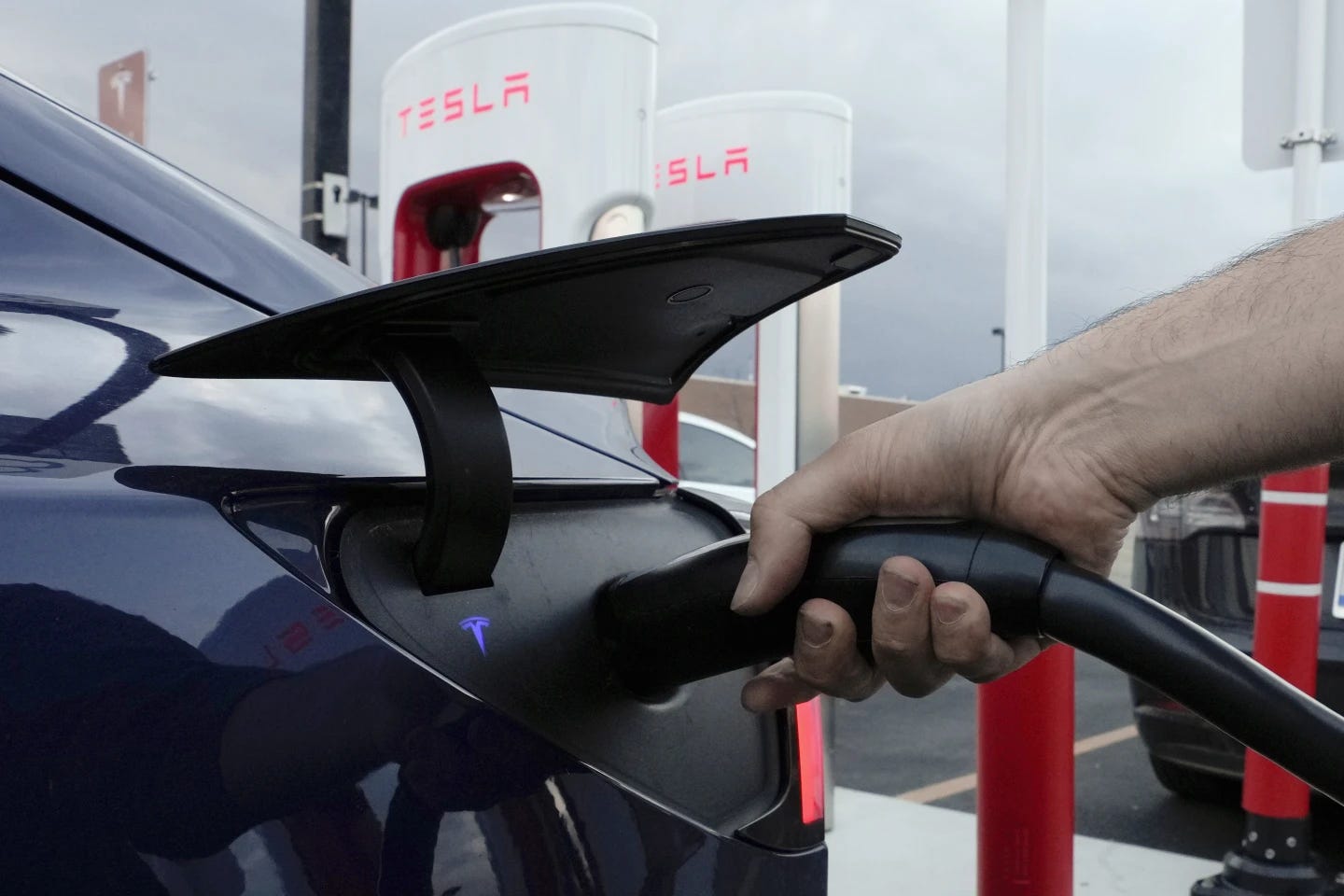Michigan’s Electric Vehicle Industry Remains Optimistic Amid Trump’s Policy Shifts
DETROIT (AP) — Despite President Donald Trump's recent policy changes targeting the electric vehicle (EV) sector, Michigan's EV industry remains confident about its future. The state, traditionally known as the heart of America’s auto industry, has become a leading hub for electric vehicle investment, with over $27 billion being invested into approximately 60 EV manufacturing and battery projects. This outpaces Georgia’s $26.6 billion investment, according to Atlas Public Policy, further solidifying Michigan’s central role in the evolving automotive landscape.
In addition to the major automakers, Michigan is home to a vast network of suppliers supporting the electric vehicle shift. Notable developments include General Motors' revamped Factory ZERO in Detroit's Hamtramck neighborhood, now producing electric Hummers and Silverados. A new $1.6 billion battery manufacturing campus in Van Buren Township is also set to create over 2,100 jobs while producing the equivalent of 200,000 EV battery packs annually once fully operational.
Detroit’s Corktown area also houses Newlab, a futuristic building where tech entrepreneurs collaborate with automakers to push the boundaries of EV technology. These innovations are seen as key to the state's continued leadership in the EV industry.
Auto dealer Eric Frehsée, of Tamaroff Auto Group in Metro Detroit, remains positive despite federal policy changes under the Trump administration. Frehsée has already invested in infrastructure, such as forklifts for heavy EV batteries, and has trained his technicians to service electric vehicles. “The investments aren’t ill spent,” he said, reflecting his commitment to preparing his dealership for the electric future, with EV models now available from Nissan, Honda, Acura, and Kia.
On the east side of Detroit, Ray Smith runs an EV training program at Blast Detroit, where aspiring auto technicians learn to diagnose and repair electric vehicle systems. “We’ve got to move forward, of course,” Smith stated, emphasizing the industry's drive to progress regardless of federal policy shifts.
Earlier this week, President Trump signed an executive order aimed at rolling back several policies implemented by the Biden administration, including a mandate for 50% of new vehicles sold by 2030 to be electric. He also proposed eliminating a $7,500 tax credit for new EV purchases and halted funding for EV charging stations. These moves have stirred concern among some industry stakeholders, though automakers like Stellantis, Ford, and GM have expressed a readiness to adapt to any policy changes.
While the EV market continues to grow, challenges remain. Though electric vehicles made up 8.1% of U.S. car sales in 2024, sales growth has slowed compared to previous years, according to Motorintelligence.com. EVs remain more expensive upfront than traditional gasoline-powered vehicles, though their prices are expected to decrease over time.
Bruce Westlake, president of the Eastern Michigan Electric Automobile Association, noted that while demand for cleaner vehicles exists, it could dwindle without continued federal support. "The Michigan EV industry is caught between building vehicles that are profitable now, like gasoline cars, and preparing for the electric future," he said. "I believe that initial investments will mostly be lost."
Despite these challenges, Michigan’s EV industry remains resolute. Q Johnson, CEO of Plug Zen, a Detroit-based company focused on EV charging for fleet vehicles, expressed a “wait and see” approach. He added, "We’re determined not to be left behind."
The push for electric vehicles continues to evolve in Michigan, with the state’s auto industry adapting to a new era of transportation, regardless of shifting federal policies.


